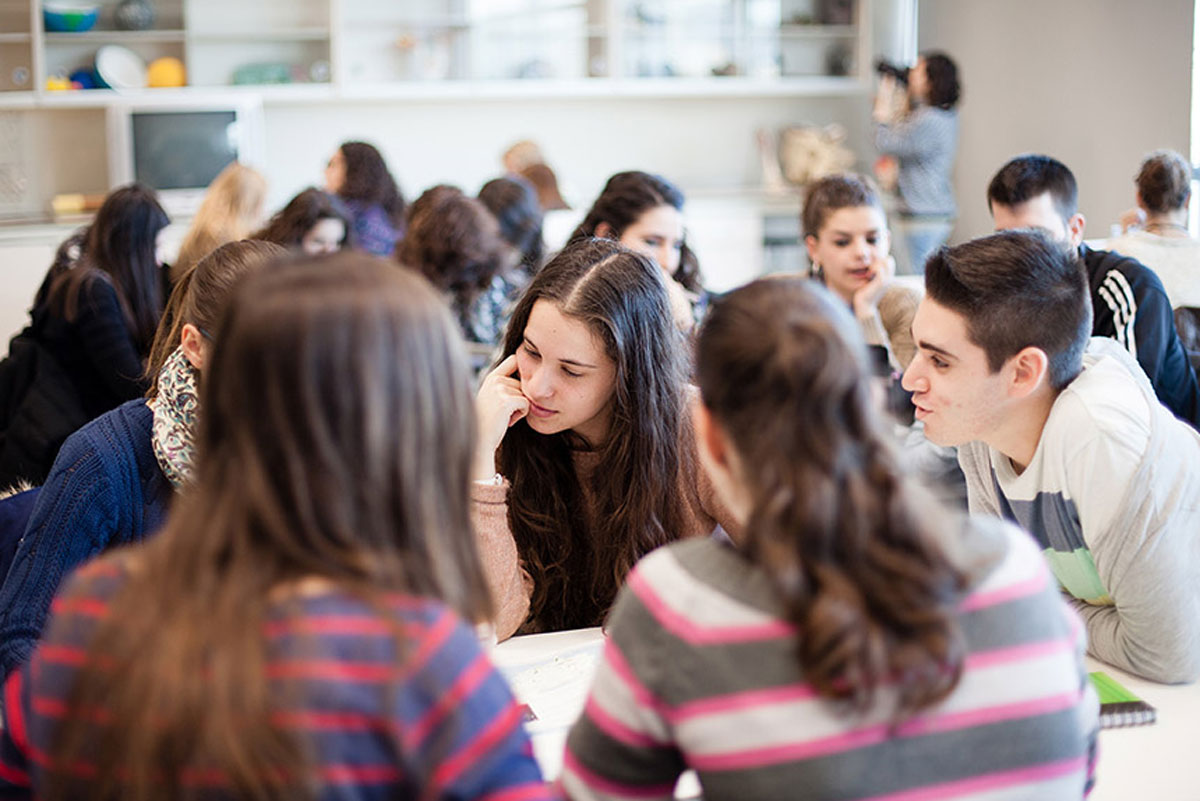Researchers conclude that working empathy with teenagers prevent criminal behaviours
- June 26th, 2017

Anna Llorca, Elisabeth Malonda and Paula García, researchers from the Department of Psychological Personality, Evaluation and Treatment of the Universitat de València, conclude that the emotions management in teenagers is important to control the aggressive behaviour and, in this way, to dominate the potential delinquency. The study, which is published in two articles, shows the importance of introducing intervention programmes in the educative centres which encourage the ability of self-management of these emotional states.
The research compares a certain emotional situation (the combination made up by anger, anxiety, depression and emotional instability) among a group of teenagers that have criminal records and another that doesn’t have them. The three researchers of the Faculty of Psychology conclude that there is a strong relationship between the emotional instability and the anger in both groups but only the one made up by offenders directs these emotions towards aggression.
The different emotional states analysed are, according to the research, ‘easier and equal within the non-offender group, whereas the relation between emotional instability and ager or anxiety are more complex in the case of attackers’, explain Llorca, Malonda and García. They claim that the results of the study show the different function of anger between both groups. The offenders adjust the verbal and physical aggressiveness, which brings to violence, based on the anger.
In the articles published in the magazines The European Journal of Psychology Applied to Legal Context and Psicothema, the experts also include the gender variable and distinguish the answer of boys and girls in each of the groups. The only variable which presents a deviation in depression. This is more frequent among the girls, both criminals and non-offenders.
In this regard, Anna Llorca, Elisabeth Malonda and Paula García affirm that the inclusion of intervention plans at high schools is necessary in order to provide tools with which these emotions can be controlled and possible problematic attitudes can be prevented. The researchers of the Universitat de València also consider that empathy is a source of more tolerant behaviours in the social scope and a powerful tool to control feelings such as anger, depression and anxiety.
Methodology
The study has been conducted with 440 people between 15 and 18 years which have been divided into two groups: criminals and non-offenders. The people who form the first group come from four Valencian reformatory institutions and those of the second group are students of Valencian public and semi-private centres. The committed crimes are verbal violence against mentors, damage to private properties, offences against public health and attacks against the authority.
The programme has involved the filling of questionnaires on a voluntary and anonym basis which lasted about 50 minutes. The experts have used tools to evaluate behaviours related to the mentioned emotions. The psychologists affirm that this tool has shown the lack of self-control in certain social situations experienced by young people.
Articles:
- Llorca Mestre A., Malonda E., Samper-García P: «Depression and aggressive behaviour in adolescents offenders and non-offenders». Psicothema, 2017 maig; 29(2):197-203. DOI: 10.7334/psicothema2016.276 - Llorca-Mestre, A., et al. «Prosocial reasoning and emotions in young offenders and non-offenders». The European Journal of Psychology Applied to Legal Context (2017), http://dx.doi.org/10.1016/j.ejpal.2017.01.001
















